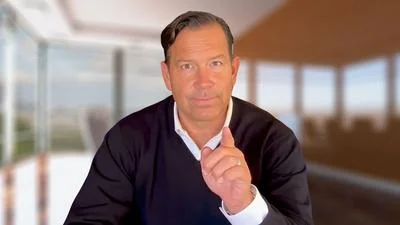It is no secret that America’s obesity epidemic’s largest victim is the federal government. In fact, if the federal government were a person and had a TV show, it would likely end up in rotation somewhere between My 600 Pound Life and 1000 Pound Sisters on TLC. The Department of Health and Human Services (HHS), ironically, is one of the major victims of this federal obesity epidemic, but thankfully there is some emergency surgery taking place.
Since taking the reins of HHS, Secretary Robert F. Kennedy, Jr. has made addressing America’s health problems his top priority. This treatment regimen is craved by the American people, as evidenced by his Make America Healthy Again movement; but the American people also know the department’s bloat will get in the way. The populace’s desire for reform is why Kennedy’s ascension came in tandem with Americans’ overwhelming demand that President Trump return to the White House and cut down the federal government to size. Already we have seen moves towards accomplishing this mandate.
The polls reflect this attitude with 54 percent of Americans viewing the government as doing too much, according to Gallup polling in 2023. But that hasn’t stopped many who support the bloat from coming out of the woodwork in defense of federal workers — with some going as far to claim that the federal workforce “isn’t so bloated.”
We’ve all seen the litany of headlines popping up online designed to drum up sympathy for the departing HHS workers as well as drive a wedge between the president and his advisers like Elon Musk. Doom speak predictions of a poor federal disease outbreak response are flying next to headlines claiming the HHS firings could undermine the president’s plans. Warnings of mental health risks for federal employees are now hitting the national news cycle, and these media outlets are desperately attempt to score points against the new administration by making it appear the agencies letting employees go are clamoring to get them back.
It’s not as though this downsizing move was not on the table; Kennedy said, “nothing is going to be off limits” when it comes to reducing chronic disease in America. Downsizing the federal government can be an effective first step to accomplishing that goal, as it removes the workers in the federal government who would work to undermine the reforms taking place.
It also ensures that scientific integrity is placed at the forefront of personnel decisions so that unelected bureaucrats are unable to unduly influence American health policy as unilateral decision-makers as they did during the COVID-19 pandemic. In fact, downsizing also returns these experts to the role they were meant to play in the federal government – a single voice among many who is weighed against his peers.
Additionally, the culling at HHS opens up the budget to include more studies that can help address the chronic diseases affecting Americans, while also giving runway to hire better and brighter scientific minds to provide guidance to policymakers. Having the best and brightest, who understand the intricacies of their fields better than most people in the world, helming their ships while giving them the resources they need leads to not only better policy, but a healthier America overall.
The role of HHS is to keep Americans healthy. It is designed to provide oversight to our nation’s food and drug manufacturers, suppliers, and others critical to our nation’s well-being. HHS was never designed to be the end-all science hub making decisions for the American people without their blessing. These firings, while hard to swallow for some, can set HHS in the right direction to truly make America healthy again.
Martin Hoyt is the Director for Public Health Reform Alliance, a nonpartisan organization committed to increasing transparency and oversight on the public health system, so it works better for all Americans.









